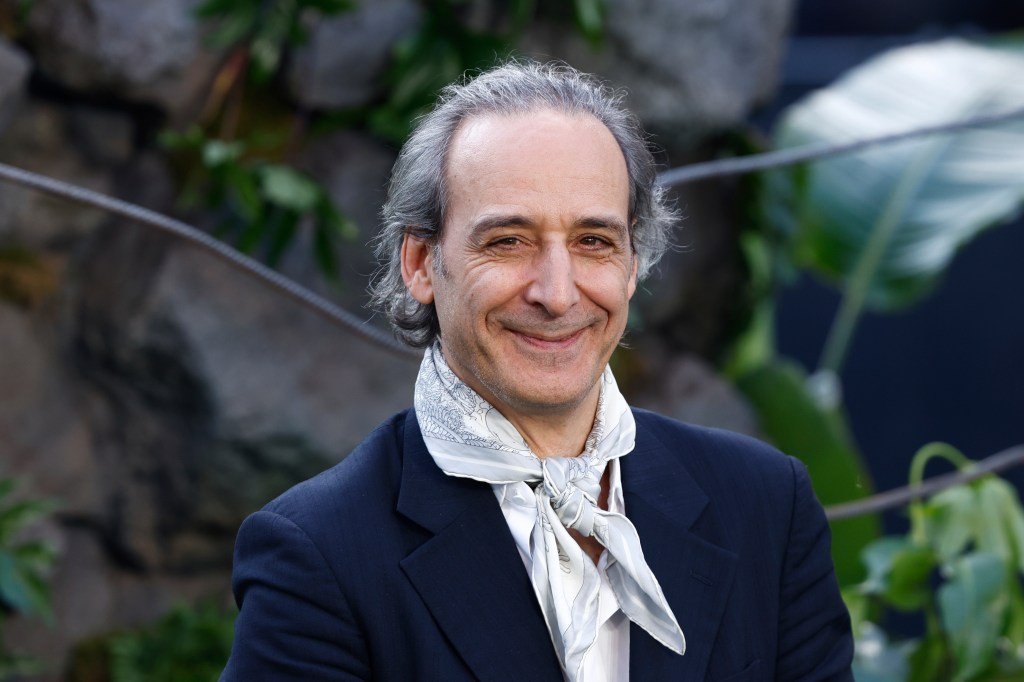The Journey of Alexandre Desplat: From Childhood Dreams to Cinematic Mastery
Alexandre Desplat, a prominent film composer celebrated for his evocative scores, was drawn to movie soundtracks at a young age. Growing up in a musical household, the allure of film music took root when his parents, who met as students in America, introduced him to soundtracks from iconic films. Notably, records like George Duning’s scores for “Picnic” and “Cowboy” shaped his early experiences. “Hearing that at home and my burgeoning love for cinema around age 12 or 13 made me appreciate the variety of music that could accompany film,” Desplat recalls. His musical journey intensified when he encountered John Williams’ grand compositions, particularly in “Star Wars,” which solidified his career aspirations.
Desplat’s illustrious career has positioned him alongside cinematic giants, culminating in his highly anticipated debut at the Hollywood Bowl on July 15, 2025. Conducting the Los Angeles Philharmonic, he will showcase selections from his celebrated scores, including “The Grand Budapest Hotel” and “The Shape of Water,” both of which garnered him Academy Awards. Desplat’s mastery isn’t confined to a single genre; he has created scores for diverse films like “Godzilla,” “Harry Potter and the Deathly Hallows,” and “The Curious Case of Benjamin Button.” The opportunity to conduct at such a renowned venue represents not only a personal milestone but a thrilling tribute to the legacy of film music.
Collaboration is a cornerstone of Desplat’s artistic approach. He often works with directors like Wes Anderson and Guillermo del Toro, fostering a synergy that enhances his compositions. In preparation for the Hollywood Bowl performance, Desplat meticulously selected scores that fit the symphonic format, reflecting his deep appreciation for the orchestral arrangements. “I aimed to present only Anglo-Saxon scores for the LA Phil, focusing on pieces that resonate well with large ensembles,” he explained. This careful curation allows him to weave a narrative through his music, celebrating the intricate relationship between film and score.
Desplat’s perspective on the role of music in film highlights the unique bond between composers and directors. “Great tandems, like Hitchcock and Bernard Herrmann, refine the connection of music with visuals,” he muses. Successful collaborations cultivate an environment of trust and exploration, which enables composers to push creative boundaries. For Desplat, the loyalty from directors plays a significant role, as it frees him to take artistic risks that often yield remarkable results. This continual exploration resonates deeply with audiences, as they experience a fresh perspective on familiar stories through innovative scores.
The unpredictable nature of award recognition in the film industry serves as a reality check for many composers, including Desplat. “Winning an Oscar is complex and depends on numerous factors, including the film’s reception,” he reflects. This understanding illustrates the intricate dance between score, film success, and audience perception. Despite accolades, Desplat emphasizes that not every remarkable score receives the recognition it deserves. “It’s a complex combination that goes beyond the music itself,” he notes, reinforcing the idea that public and critical responses impact a score’s legacy.
Winning an Oscar has been a dream for Desplat since his adolescence. The emotional weight of receiving such recognition is palpable as he recalls the surreal moments on stage. “Getting an Oscar signifies that your work resonates with your peers and audiences,” he shares. This acknowledgment not only enhances the composer’s career but also highlights the cultural power of film music. His reflections on John Williams, who remains a towering figure in film scoring, showcase the artistry and innovation that Desplat aspires to emulate. “Williams has set a standard—each of his scores encompasses a unique quality that invites listeners to explore it further,” Desplat remarks, embodying the reverence he holds for his idol.
As Alexandre Desplat continues to compose timeless music and collaborate with acclaimed filmmakers, his journey underscores a profound connection between sound and storytelling. His upcoming performance at the Hollywood Bowl stands as a celebration of his artistic contributions to cinema. By blending masterful compositions with evocative narratives, Desplat not only honors the legacy of film music but also inspires future generations of composers to follow their dreams. In the words of Desplat, “The greatest joy in film composing is in creating something that resonates deeply with both the film and its audience.”









